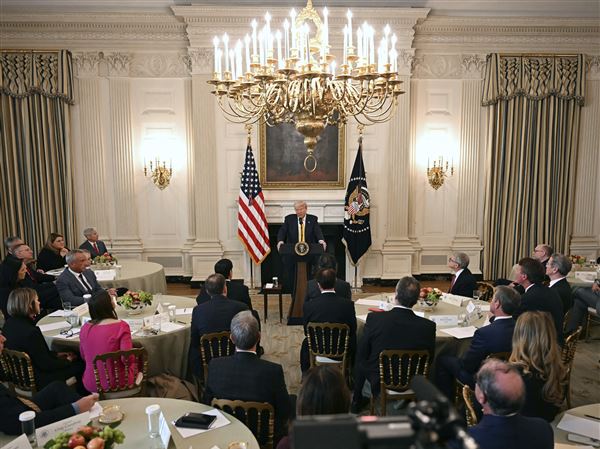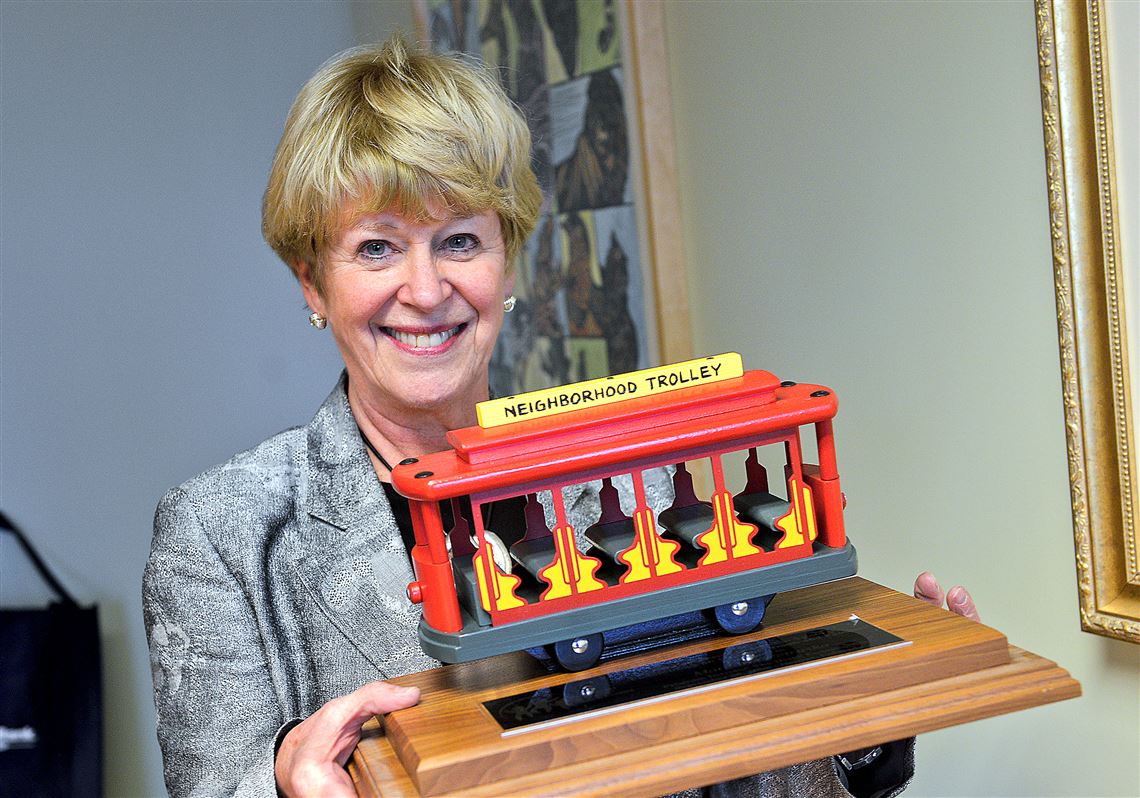Twenty-five years ago, Marge Petruska made a bet with the late U.S. Sen. John Heinz III that an ambitious program designed to improve prenatal care for low-income women could dramatically reduce infant mortality rates if state government helped to implement it with funding from private foundations.
At the time, the senator and heir to the Heinz food company fortune was chair of the Howard Heinz Endowment, where Ms. Petruska was a program officer for children, youth and family services.
The endowment and the Pew Charitable Trusts had partnered to create the program known as A Better Start. But when Ms. Petruska, at an endowment board meeting, requested millions of dollars to expand it statewide, the senator was skeptical that government could make it work effectively.
“I won that bet,” Ms. Petruska recalled last week.
The endowment board ultimately approved the funding for A Better Start. Though Sen. Heinz died in a plane crash in April 1991 before the initiative’s statewide success could be fully documented, it became a national model for public-private partnerships such as the federal government’s Healthy Start program.
The prenatal care program was among the career milestones Ms. Petruska reflected on during an interview as she prepares to retire from the Heinz Endowments at the end of this year.
It also stands as one of many examples of the kind of creative philanthropy she has overseen during her 32-year career with one of the city’s most influential grantmakers.
“She has courage to take on the tough problems, the ones where there’s a risk of failure … and push the boundaries around producing better outcomes,” said Ralph Smith, senior vice president for the Annie E. Casey Foundation, a Baltimore-based foundation that invests nationwide in programs that help vulnerable children and families.
A former faculty member at the University of Pennsylvania Law School who now manages a Casey Foundation-funded national program called the Campaign for Grade-Level Reading, Mr. Smith said consulting with Ms. Petruska in the early 1990s when she was developing the statewide early learning system Early Childhood Initiative “was one of the reasons I went into philanthropy.”
“She was using philanthropic dollars to model and test a system redesign with the expectation that if it worked … the state would spend public dollars more effectively. At the time, it was the most exciting project in the country and an example of philanthropy at its best.”
Ms. Petruska estimated the Heinz Endowments — the organization formed in 1997 through the merger of the Howard Heinz Endowment and the Vira I. Heinz Endowment — has approved $200 million in grants during her tenure overseeing its children, youth and family programs.
Among the other initiatives she helped to craft that were funded by those grants were Pre-K Counts, a $16 million public-private partnership to improve Pennsylvania’s pre-kindergarten programs; a system of 28 Family Support Centers in the Pittsburgh region that assist low-income, disabled and at-risk children and families; and initiatives to address domestic violence and black infant mortality.
“There’s no vulnerable population that she hasn’t helped in an extraordinary way,” said Robert Nelkin, president of the United Way of Allegheny County who worked closely with Ms. Petruska in the 1970s to de-institutionalize and help move disabled individuals from state institutions to their home communities.
“She was persistent even in the face of people resisting the change she was calling for,” Mr. Nelkin said.
Ms. Petruska — a Murrysville native whose career prior to philanthropy included being a public school teacher; play therapist with emotionally disturbed children; nonprofit director; and policy and program director for state and county human service departments — credits the endowments with allowing her to drive innovative programming.
“The [Heinz] family never shied away from doing something that had never been done before,” she said during the interview in her office at the EQT Plaza, Downtown.
With assets of $1.6 billion, the Heinz Endowments handed out $75.2 million in grants last year and is ranked 54th among the top 100 foundations in the U.S. by the Foundation Center. It is the second-largest philanthropy in Pittsburgh behind the Richard King Mellon Foundation, which has assets of $2.3 billion.
Ms. Petruska was hired by H. John “Jack” Heinz II, grandson of the founder of the food empire and then-chairman of the endowments board. She had been Allegheny County’s program director for mental health/mental retardation, drug and alcohol services (now the county Department of Human Services).
She was attracted to the endowments job because “I knew with government money a lot of times you had to hold the status quo. With private philanthropy, you could be more innovative and once here, take a risk and fail.”
Under Sen. Heinz, who succeeded his father as endowments chair and was a strong advocate for the homeless, Ms. Petruska said she and other program officers had to sharpen their research. He frequently made inquiries such as, “How do we know that works?” and “Can’t we do better?”
Teresa Heinz Kerry, who became endowments chair after the senator’s death, “was really hands-on” in terms of input, in particular about early childhood education, said Ms. Petruska, who has also worked directly with each of Mrs. Heinz’s sons — H. John IV, Andre and Christopher Heinz, who now sit on the board of directors.
A bold decision in 2002 by the endowments, the Grable Foundation and the Pittsburgh Foundation to stop funding the Pittsburgh Public Schools until they saw meaningful change not only illustrates the “strong collaborative spirit” among the region’s philanthropic institutions but underscores Ms. Petruska’s powerful thinking, said Mr. Smith.
“Marge was very much involved in that position and it had national implications for the relationship between philanthropy and public institutions, especially education,” he said.
Asked her age, Ms. Petruska wouldn’t divulge it but referred to a quote from “The Prophet” by Kahlil Gibran: “To be able to look back upon one’s life in satisfaction is to live twice.”
With 32 years at the endowments and time spent at previous jobs, “My age times two makes me really old.”
That said, she’s anxious to test her recently upgraded bicycle on regional trails and will kayak on the region’s lakes and rivers. She’s been asked but hasn’t committed yet to joining any nonprofit boards. She plans to volunteer in her own Aspinwall neighborhood at the community’s new riverfront park.
“And I will never abandon early childhood,” Ms. Petruska said. “I will help in any way I can — from a little distance.”
Joyce Gannon: jgannon@post-gazette.com or 412-263-1580.
First Published: December 16, 2015, 5:00 a.m.
















